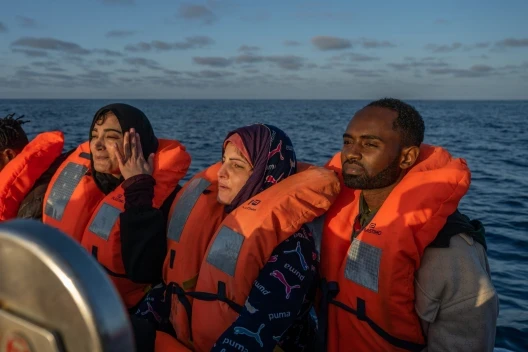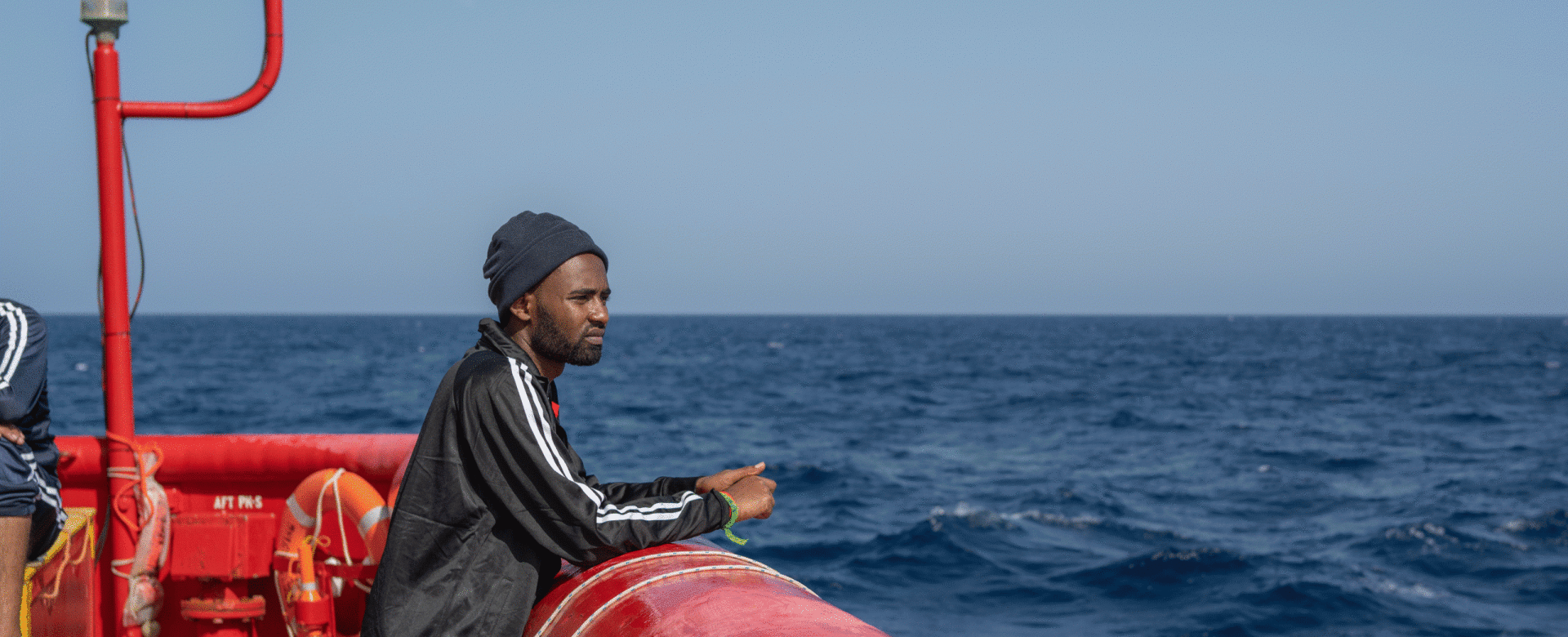

Arham* was rescued on March 9, 2025 from a fiberglass boat in distress in the Libyan Search and Rescue Region. He was among 25 people saved by the crew of the Ocean Viking. During the operation, a Libyan Coast Guard vessel was just 10 minutes away from reaching the boat.
At just 24 years old, Arham is a trained medical doctor from Ethiopia. He completed his degree and worked in a hospital, earning the equivalent of 100 euros per month. His parents are farmers, and like more than 70% of Ethiopians, they rely on rain-fed agriculture. But Ethiopia is now facing its worst drought in four decades, reports IOM, making survival through farming impossible. When the rains fail, many people are pushed to move – either within their home country, or across borders:
“Ten minutes saved our lives,” Arham said after learning how narrowly they had avoided interception by the Libyan Coast Guard.

“Droughts have been increasing due to climate change. Many people who live off the land are moving to other countries because they can’t sustain their crops anymore. Either they move to the city to do small jobs like cleaning, or they leave. Some even try their luck in Somalia which is not peaceful at all,” Arham explains.
While most climate-related migration in Ethiopia remains internal, over 800,000 people were displaced in 2023 alone, due primarily to drought*. As in Arham’s case, environmental pressures are compounded by poverty, conflict, and the burden of family responsibility.

Of nine siblings, Arham and his brother are the only ones with university degrees. With harvests failing and no stable income at home, the family increasingly depended on the two brothers for financial support.
“In my country, doctors’ efforts are higher than the salary. But the love, respect, happiness of your patients is greater than your salary. Money is nothing without love.
All I hope is to continue to study or to work as a doctor. The few months when I worked as a doctor was the best part of my life because helping patients is the most satisfying thing I can do.”

The International Organization for Migration, along with the World Bank, estimates that, if no action is taken, up to 216 million people could be displaced within their countries by 2050 due to slow-onset climate change. While cross-border movements are more complex and often shaped by multiple factors, the burden of environmental stress, combined with economic hardship and insecurity, is a growing force behind forced migration worldwide.
In Arham’s case, migration was not a choice. It was a means of survival: for himself, for his family, and for a future in which he hopes to return to the work he loves most–healing others.


